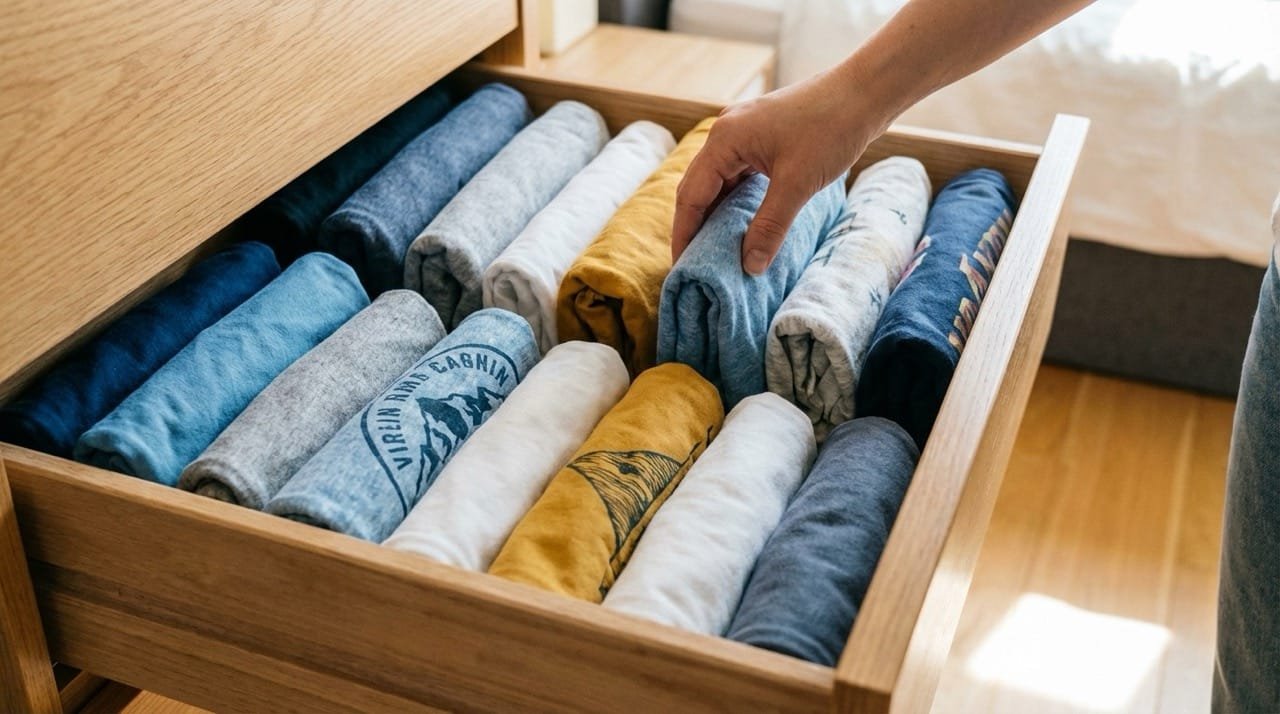It’s amazing how much stuff we accumulate over time. And it’s not just stuff – it’s money. We spend money on things that we think we need. Things we think we’re going to wear. Stuff we lust for after seeing it in an ad, on social media, or sported by a celebrity we admire. And then it sits around and collects dust. Or gets left hanging in the closet with the tags still on. Or maybe we just get sick of it and it winds up in the corner, no longer loved or used. One day it’s in our way. We trip over it and it stares back at us. Geesh, we think. All that clutter used to be money.
Money we could have put towards something else. Like a mortgage. A medical bill. A dream trip. Or maybe just a nice meal out.
It can be a frustrating epiphany to have. Particularly if you find yourself at a crossroad where you can no longer afford to spend like you used to. Where you could really use that money you once spent with nonchalance.
To add insult to injury, you might even start resenting your stuff, regret buying it, feel as if you’re suffocating in it. Or even get upset with yourself.
“What on earth was I thinking when I blew seven hundred bucks on this stupid [insert now-seemingly-stupid-item of your choice]?!”
Stop. You know what they say about crying over spilt milk. Beating yourself up won’t change the past. What you can do though, is change the present. Plus you have a good degree of control over the future, too.
It All Comes Down to Habits
It’s easy to get overwhelmed by clutter, but it’s important to remember you can declutter anytime you please, and change your habits as you wish.
Yes, all that clutter used to be money, and it could be again if you re-sell it or donate it. It’s not possible to change the past, so look at it this way: you are not obligated to repeat any stupid purchases or poor financial decisions you might have made previously. If you’re unhappy with something right now, be it clutter or your latest credit card statement, why not devote your energy to improving the situation instead of making yourself feel bad?
I’ve written a lot here at Tidymalism about curbing clutter and not letting it take over your life. About scheduling time to clean, staying on top of digital messes, and sticking to routines to keep things tidy and prevent your space—however large or small—from inducing stress.
Regardless of how much or how little you have, keeping your home (and your head) clutter-free is an admirable goal and one that can help make you happy, more satisfied, and even achieve better mental health. The key here is to build habits that help you get from A), a situation you’re unhappy with, to B), where you want to be.
Habits don’t happen overnight. If you’re upset looking around your space and thinking to yourself woah, all that clutter used to be money, you have a few good ways of dealing with it.
Assess your spending habits. Determine your weak spots. Make a plan to change them by building new micro habits. And sort out any clutter that’s currently bugging you. We’re in control of our stuff, and our habits. Not the other way around.
Why We Have So Much Clutter
Material goods used to be a way to show off one’s wealth and status, and if we’re honest, they still are. We live in a culture of consumption. We’re constantly getting hit with very strong messages telling us that we need more stuff. A lot of that stuff is also very deliberately designed by default to have to be replaced one day.
At home, we hang onto things because we think we might need them someday. Over time many of us also develop a sentimental attachment to specific belongings.
There comes a point though when you naturally feel satiated. When you’ve had enough. Enough new books, handbags, kitchen appliances, plants, clothes, art supplies, collectibles, whatever. Some days it might even be a nuisance. Taking up space and making it hard to find things. Stressing you out. And then you realise how much you spent on it all and shake your head.
Getting rid of clutter can be liberating. It can give us more space, both physically and mentally. You can also keep it all, of course, and opt to re-organise it.
Maybe All That Clutter Used to be Money, but You Can Recoup Some of It
You can recoup some of the cost of clutter by re-selling it. This requires some time or energy, but if you’re willing to put in the work, you can make some good cash back on your used items.
You could also simply throw it away (please recycle). Or re-organise it all to your liking. Or donate it to a local thrift store or charity. This is a great way to get rid of clutter and help others at the same time. You might even be able to get a tax document to deduct your donation.
Regardless of the route you take, it’s important to take a hard long look at the habits to got you in the situation you’re unhappy with. When we fail to do that, we often find ourselves in the very same pickle again down the road.









Leave a Reply